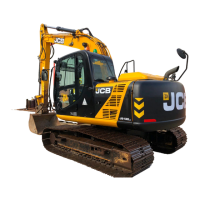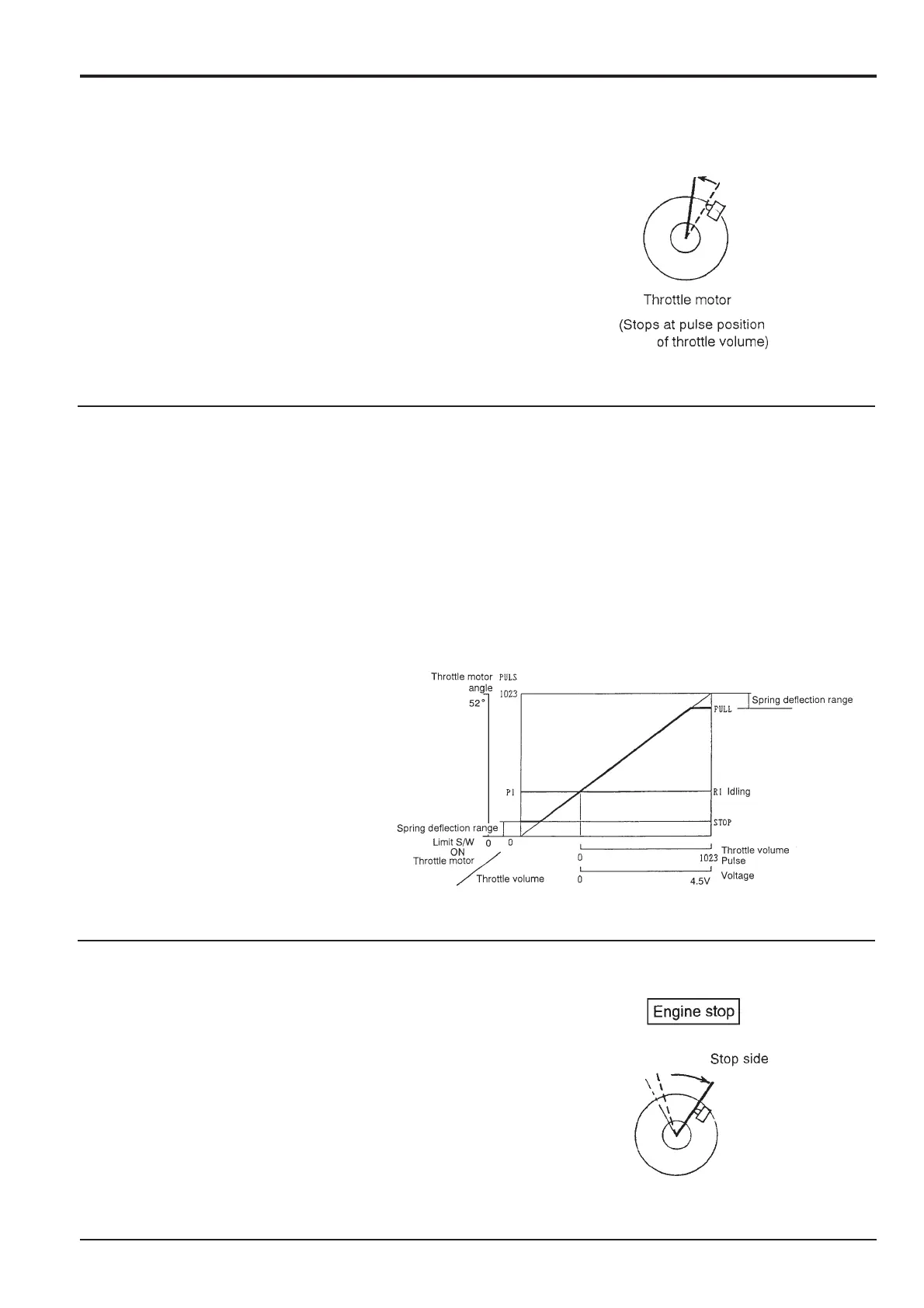4 - 4
Throttle related function (continued)
For the Throttle motor to rotate to the position required by
the throttle volume, an instruction from (CN8-4) to rotate
counter clockwise is sent from the controller to the motor
driver, and
when received, sends a counter clockwise pulse from the
motor driver to the throttle motor. Confirmation of the
received pulse by the motor driver is achieved by a feedback
signal pulse sent back to the controller, at (CN4-1).
When the throttle motor pulse (that is the pulse which is
converted by controller voltage from the throttle volume)
eventually becomes equal to the pulse which is sent to the
controller as a feedback signal from the driver, the throttle
motor will stop rotating.
Revolution increase
When the throttle volume control is rotated clockwise, the
voltage of the throttle input increases, because of this the
controller sends a counter clockwise revolution signal to the
driver, and the driver sends a counter-clockwise pulse to the
throttle motor, again the controller gets confirmation by a
feedback signal pulse sent from the driver.
When the throttle motor pulse (that is the pulse which is
converted by the controller voltage from throttle volume)
eventually becomes equal to the pulse which is sent to the
controller as a feedback signal from the driver, the throttle
motor will stop rotating.
Engine Stop
When turning the key switch to OFF, the signal of the ACC
line of the motor driver switches to OFF. When this signal
is turned OFF, the driver sends a pulse to the throttle motor
until the limit switch of clockwise rotation is turned ON.
The governor lever moves to the stop side, causing the
engine to stop, at the same time another circuit operates
and moves the fuel cut lever to the stop position.
Section C Electrics
9803/6410
Section C
4 - 4
Issue 1
Engine Control

